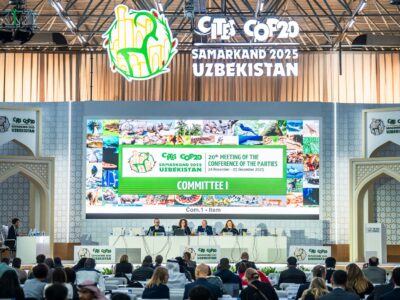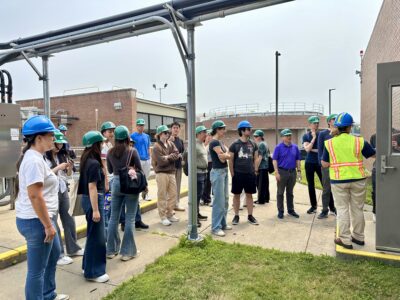
Alex Hofmann (MPA-ESP Class of 2009) is the director of Energy and Environmental Services at the American Public Power Association (APPA). Mr. Hofmann oversees the development and application of member-related information and analytical services, including the Reliable Public Power Provider program and eReliability Tracker service.
Prior to joining the APPA, Mr. Hofmann worked to develop electric infrastructure models, distributed energy projects, LEED Certified electric systems and photovoltaic systems in the solar power sector. He earned his B.S degree from California State University Monterey Bay before coming to SIPA for the MPA-ESP program.
Mr. Hofmann also currently sits as a principal member of the National Electric Safety Code Main Committee, was recently named one of industry’s top 40 innovators by Public Utilities Fortnightly, and was awarded a patent for tracking and analyzing electric service outages. MPA-ESP intern Shagorika Ghosh speaks with Alex Hofmann to learn more.
What is your role as the director of Energy and Environmental Services at the APPA?
I assist the APPA and its members with technical advocacy before the Department of Energy, Environmental Protection Agency, Occupational Health and Safety Administration, Office of Management and Budget, and other governmental and industry forums.
In the U.S. there are over 2000 utilities, owned and operated by state or local governments. The APPA supports them through advocacy, education information and has a mandate to promote cooperation and functioning of these federal bodies. We also help them use data to create better metrics to improve reliability performance. Part of my role at the APPA is creating and providing analytical, benchmarking, and other types of information services for these utilities.

Congratulations on being recognized as one of the Top 40 Innovators in the sector by Public Utilities Fortnightly, for your role in creating the eReliability Tracker. What is your vision regarding this tracker?
We created the eReliability tracker to make people’s jobs easier – to give them better tools and more information to help them do their job better. The Tracker allows you to analyze your most important business metric (electric service reliability) easily, and helps categories information about the causes and frequency of service interruptions, the most common problem areas, etc. More than 400 utilities have adopted it now and use it to keep track of their utility’s performance. As next steps, we want to create a similar tracker for safety as well, and help people do their job safely.
When you create something new, you don’t know if it will be a success or a failure. It is great that we succeeded with this Tracker, and now we want to keep going.
What made you choose the MPA-ESP program at Columbia University? What was your experience like?
When I decided to go to grad school, I found that the MPA-ESP program at Columbia University was one of the top tier programs in the country. I looked at everything SIPA has to offer – the alumni connections, the great professors and courses, and I was sold. I knew this was the right place for me and would afford me a lot of opportunities.
Being at Columbia was a great experience. Some of the smartest people are at Columbia – there is so much to learn from the professors, and it is great to be connected to such interesting people and watch them make a difference in the world. It was very inspiring and I was left with a taste to do similar kind of work. While I was at the MPA-ESP program, I also worked with Professor Vijay Modi in the Mechanical Engineering department at Columbia, who was then working on the Millennium Villages Project. Working at the Sustainable Engineering Lab with Professor Modi was hugely influential on my career path in the energy sector.
I also took some incredible classes such as ‘Energy Markets’, ‘Financial Management’, and ‘Energy and Sustainability’. These are still applicable in my current role – I am still applying methods, techniques, principles we learned in class while working with local governments to help with the tasks they face.
What advice would you have for current and prospective students in the program right now?
I would tell them to savor every moment. As a student at SIPA and Columbia University, you are part of an amazing institution, and one that is extremely interconnected. I would tell them that they need to take advantage of all the opportunities that being at Columbia affords them. I would also tell them to get out more and explore New York City!



